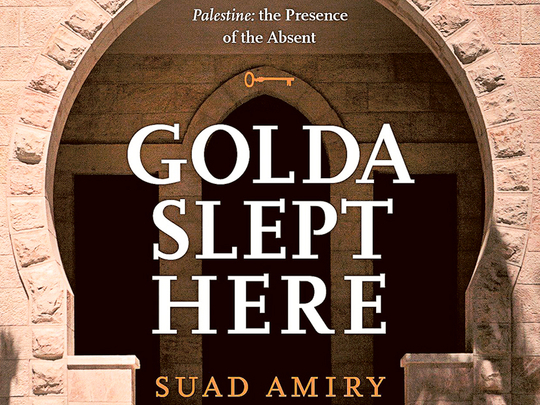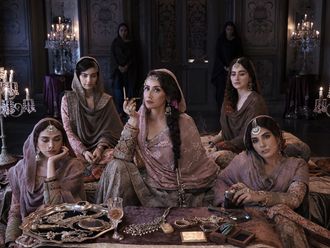
Golda Slept Here
By Suad Amiry, translated by Aiman Haddad, Bloomsbury USA, 208 pages, $16
Imagine you are reading a newspaper and a stranger suddenly snatches it from you. That would surely jolt your system to the core, and I bet even if you are the most polite person in the world, your tone would reflect the rush of an unpremeditated outburst.
Now think about this — more than 700,000 Palestinians were thrown out of their houses, their homeland.
With three books, a Viareggio-Versilia Prize (2004) for “Sharon and My Mother-In-Law” and the Nonino Prize (2014) for her work to promote peace already under her belt, Suad Amiry has led me into the time when the unimaginable happened in Palestine, a definite social, political and moral kiss of death.
I need not be under the shadow of the Palestinian conflict to feel the oppression.
Huda, a significant character in the story, made me feel as if I live in the book, within its pages. I see myself in her — blunt, persistent and always on the go amid challenges and uncertainties. She had the courage to go back to her house again and again, even if she was not permitted to do so, even if it endangered her own life. She dared to face her enemies: the ones who are enjoying her once so-called home, the shameless people who claimed ownership but hadn’t shed a drop of sweat to build it.
I would have done the same or even more.
The story made me miss my homeland. It took me to familiar places and, as if watching a movie, random scenes and faces flashed in my mind.
Were it not for the 30-kilogram limit in airline luggage and the huge price I would have had to pay for excess baggage, I would have packed my whole hometown in my suitcase.
In reality, only turtles and their ilk, and some molluscs are the privileged species that take their homes wherever they go. But it is sad to think of people wishing they were turtles, to be able to carry their homes with them.
In the Palestinian situation described in “Golda Slept Here”, lips are sealed, hands are tied without chains and hopes for justice are dim. If the emotions depicted in each page were different hues of paint, this book would have been a gallery of art. However, be warned. This book is a probable mood-swing trigger.
Suad’s punchlines drop like a bomb. It rewards with moments of sensitive prose and sharp wit: “I tell you, Huda, with the service-free arnona they impose on us and the many fines and penalties we East Jerusalem Arabs pay them [Israel], we’ve become the casino where they always win … or even better, the cash cow that they continue to milk.”
Suad Amiry’s literary opus is a mirror of the past from which it bridges us to the present and makes us hope for a future.
It’s not often that we are offered an intimate glimpse into the lives of people who seem a world away but want exactly what we all want — people we can call our own and places we can call home.
Based in Dubai, Meri Klobas works in the hospitality industry.









